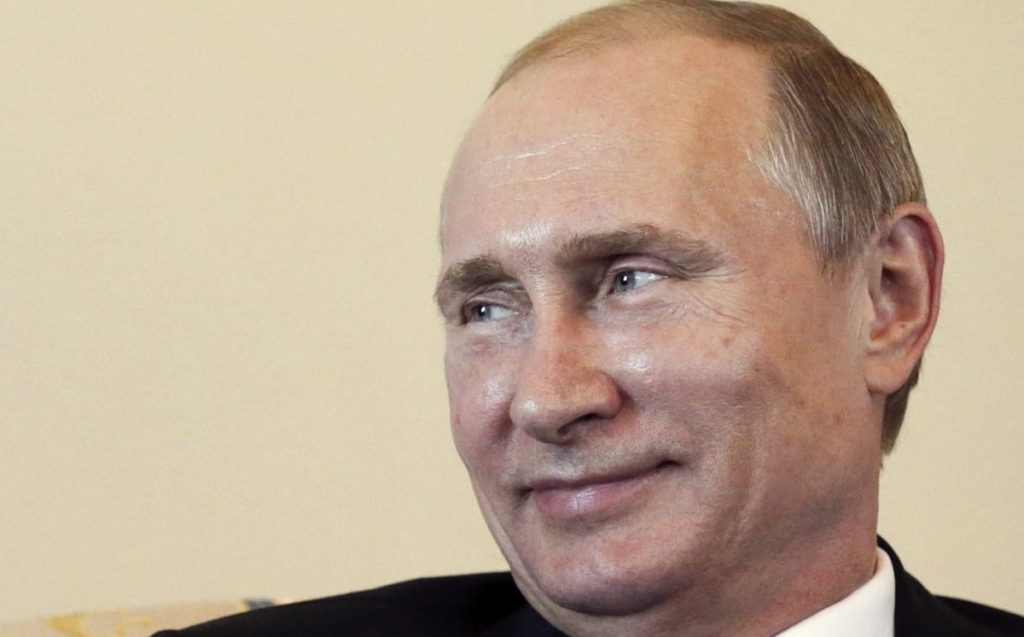President Vladimir Putin will not really be a man with a bloated sense of self appreciation following a surge in Russian public approval lately.
One of Russia’s ‘independent’ state-controlled pollster, Russian Public Opinion Research Center (VTsIOM), released polling results with Putin towering at 83 per cent.
About 1632 respondents were sampled a few weeks ago. Giving Putin thumbs up were 1355 respondents, the highest since 2017.
The polling organization would not have done otherwise and remain operational in the president’s territory.
The result raised eyebrows not a few around the globe especially with Putin’s recent military-style censorship of the media.
Although by Art 31 of Russia’s 1993 adopted Constitution, Freedom of Assembly is granted, actions by the government are otherwise.
At the start of the invasion of Ukraine in late February 2022, when the media in Russia was fully on ground, the Citizens and residents were always informed. They read news reports and watched the screens that told of the unprovoked aggression against Ukraine.
Clearly, they understood that their Nation’s tanks had rolled into Ukraine; and invasion was ongoing. The streets of different Russian cities erupted with protests and protesters in their thousands. They gave their president a no-no on the invasion, a description that Putin hates to hear.
Like attack dogs, the Russian police went for the protesters not only to silence the voice of dissent, but get them behind bars.
From the Nation’s capital, Moscow, the people took to the streets and to about 147 towns and cities, the protest continued. Government clampdown on dissenters has plucked up more than 13,000 people who said no to Putin and his action.
According to a monitoring group OVD – Info, even non protesting pedestrians on the street had their cell phones searched for videos of the protest. They were charged for peddling false news and instigation if caught with such materials.
Amnesty International alludes to the fact that the government had altered the Right to Freedom of Assembly. It was no longer business as usual; penalties of up to 15 years jail term faced war protesters and those who report and disseminate such stories.
Tactically, Putin got set to rope in the media, both foreign and local who did not play according to rule. Government posture was to keep foreign and independent reports of stories about the military invasion away from the citizens.
The government desired that the continued presence of the foreign media and courageous local brands should cease. Regardless of what the global perception may be, Putin forced the foreign media out of Russia.
The social media (Facebook, Twitter, Instagram, Google News) were not spared. They shut down on their own or were forced to do so by the hostile administration.
Clearly, Putin who is not new to information twisting to push and support his war in Ukraine set the stage. The first phase of the propaganda was to keep the narrative of executing ‘a special military operation’ in Ukraine and not war on the front burner.
Contrary reporting or discussion even by citizens met with a crackdown. Russians had very little or no source of alternative news to know what was going on in Ukraine. They were fed with what Putin and his information machinery churned out.
For instance, it is reported that pictures of destroyed Russian tanks and soldiers seemingly going through some form of suffering, purportedly at the hand of Ukrainians are allowed to spread.
This is to evoke reactions of hatred for Ukrainians and prop up support for Putin to go on with the operation.
Largely, there is a black out of killings and bombings of thousands of Ukrainian civilians including the aged, women and children.
The high rating of the Russian president at the poll conducted by state-controlled and approved pollsters did not come as a surprise. It would not have been otherwise, else such results will not see the light of the day. The executives of the polling organization also risked being expelled and tried under new decrees on dissemination of false information.
So, if the polling is based on these parameters, it is left for people with proper information to conclude whether or not 83 per cent rating equates to more liking of Putin and his war by Russians

